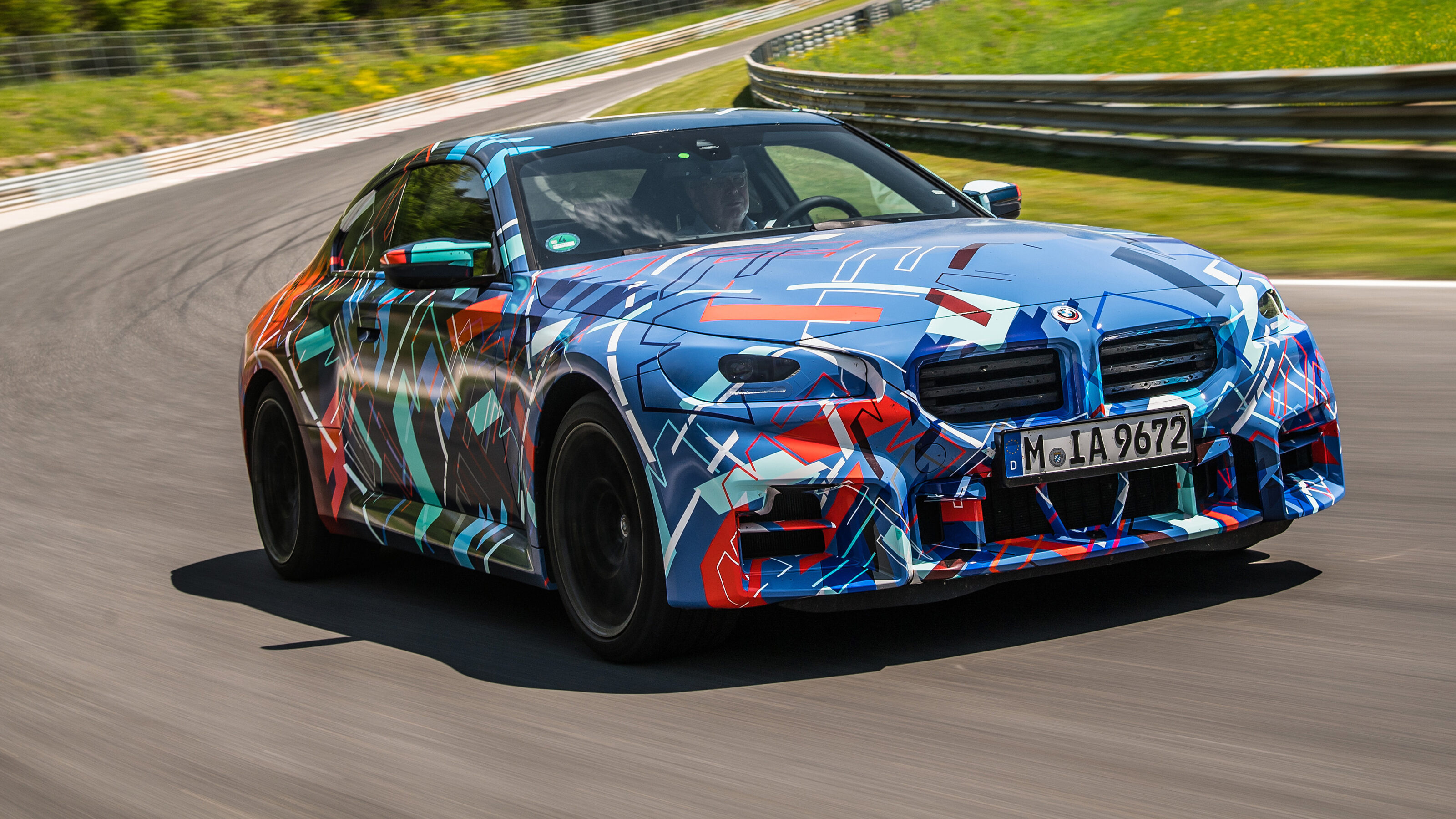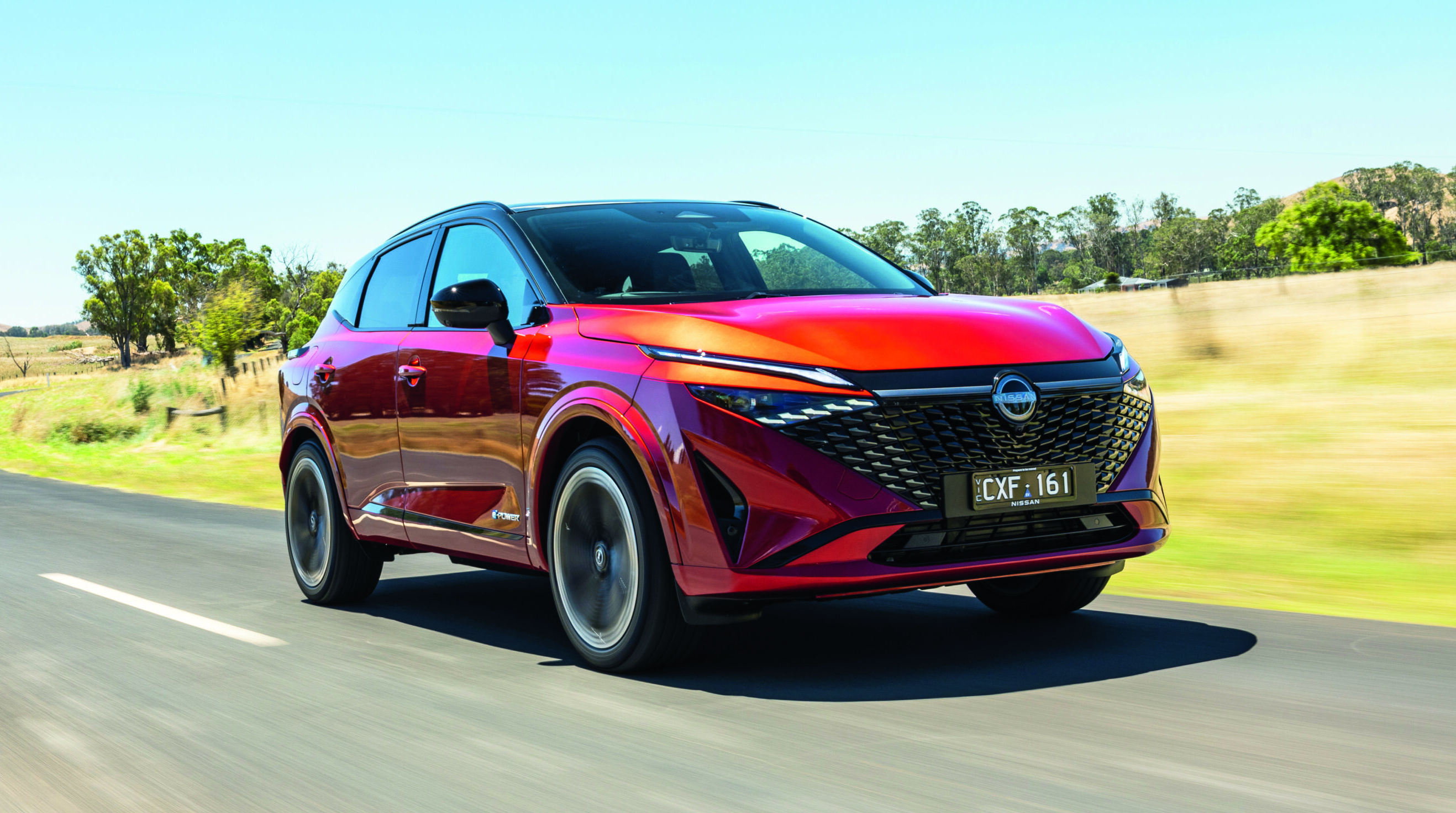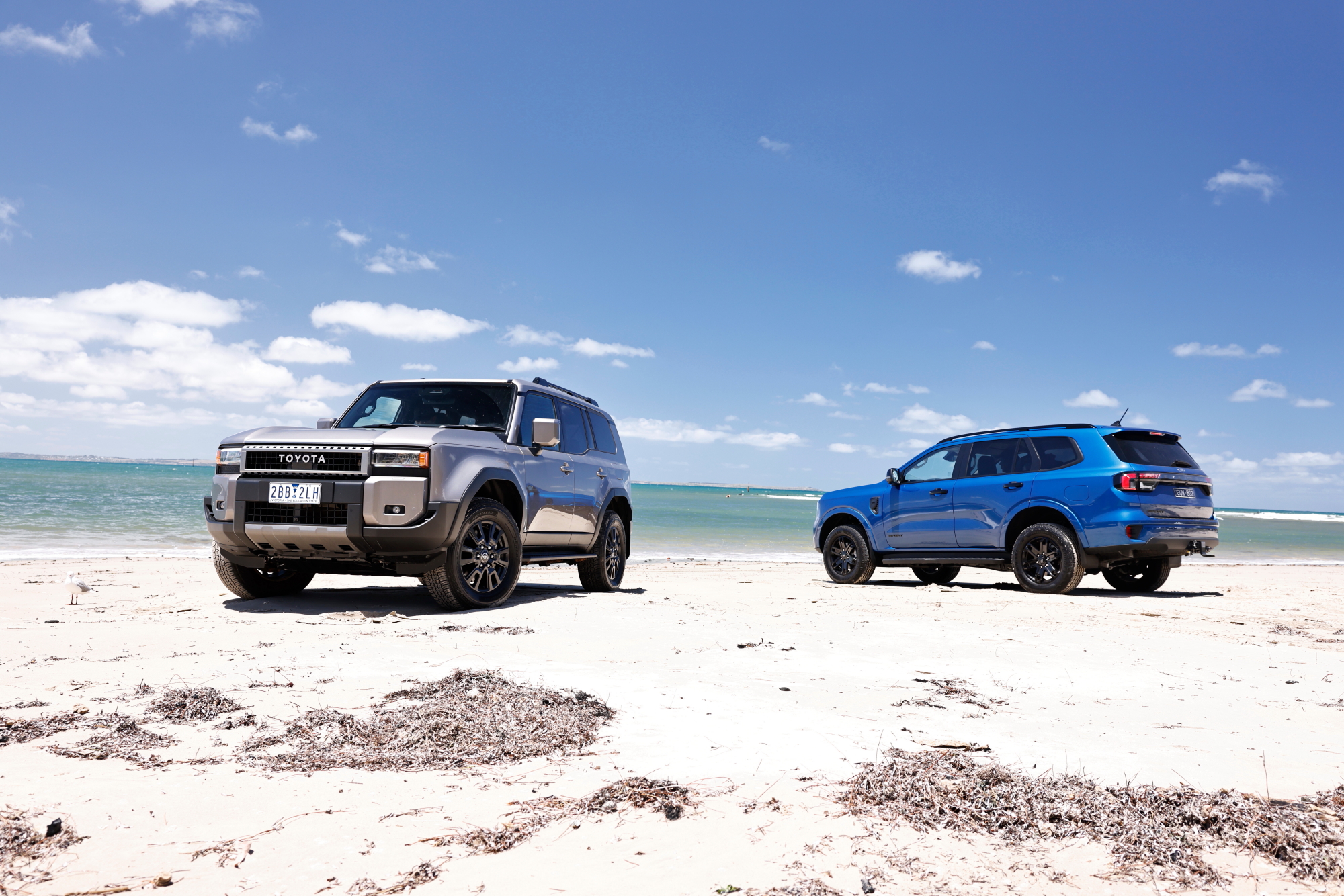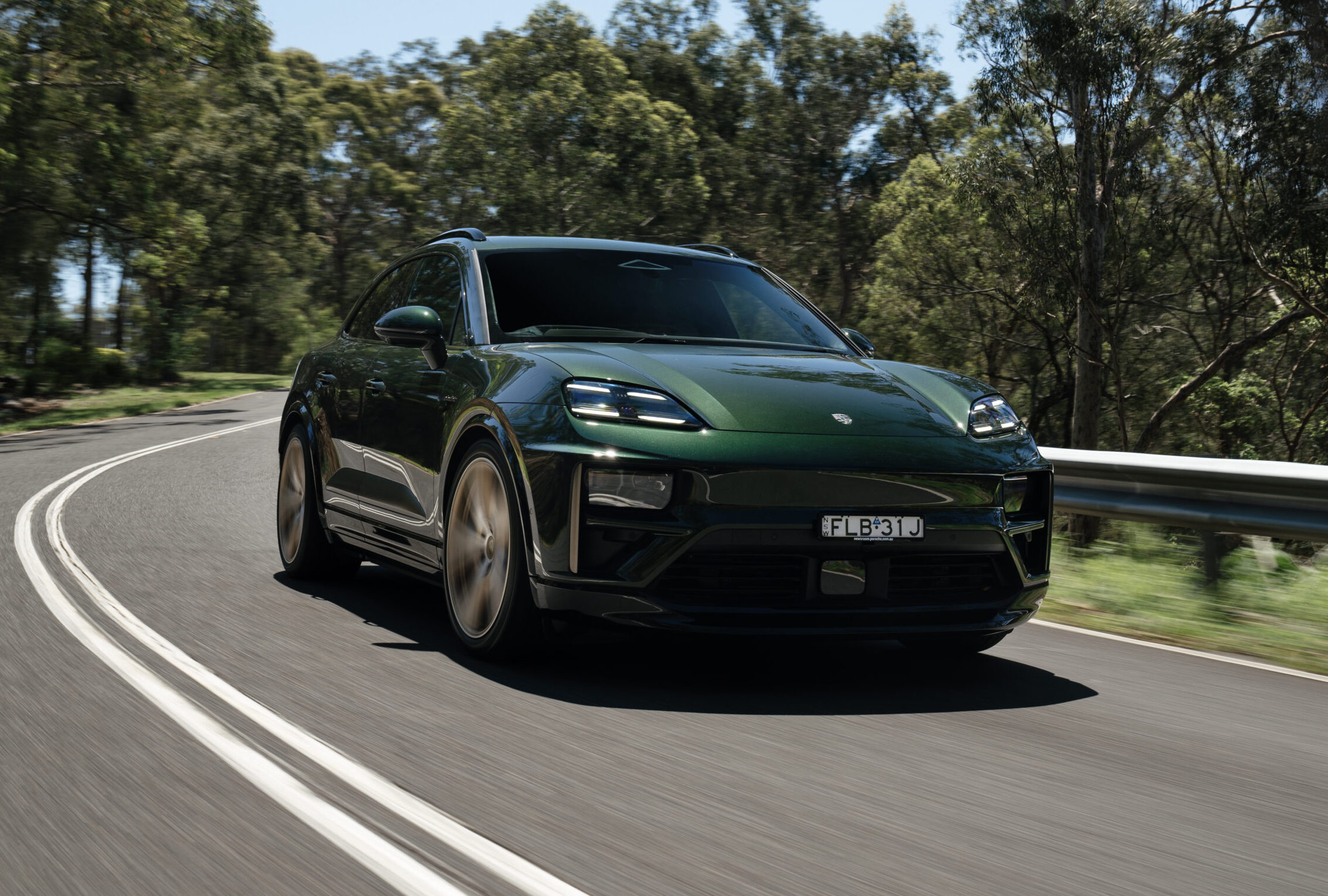Things we like
- Fabulous in-line six
- Performance almost on par with M3/M4
- A blue-chip investment
- Guaranteed to put a smile on your face
Not so much
- Has four seats but only two doors and is no packaging miracle
- No magic carpet over rough terrain
- Liable to bite back when teased
- High insurance premium
Snapshot
- 343kW, 550Nm 3.0-litre twin-turbo onboard
- Australian timing TBC, but 2023 likely
- …this is the final non-hybrid M car ud83dude31
Like father, like son.
The new 2023 BMW M2 is a downsized M4 – only less pricey and even more chuckable. We drive it on the ultra-fast Salzburgring race track on the hottest spring day in history.
The starting formation on the makeshift grid is an odd mix of almost new and ostentatiously unfinished metal. The pair of thinly disguised M2 pre-production cars – one manual and one automatic – is led by a hyperblue M4 Competition with Dirk Häcker, chief engineer of the BMW M division, at the wheel.
I am right behind him in the louder of the two M2s, which wears a psychedelic multi-blue, multi-pattern livery: Charlie Brown sharing a joint with Winnie the Pooh, if you catch my drift.
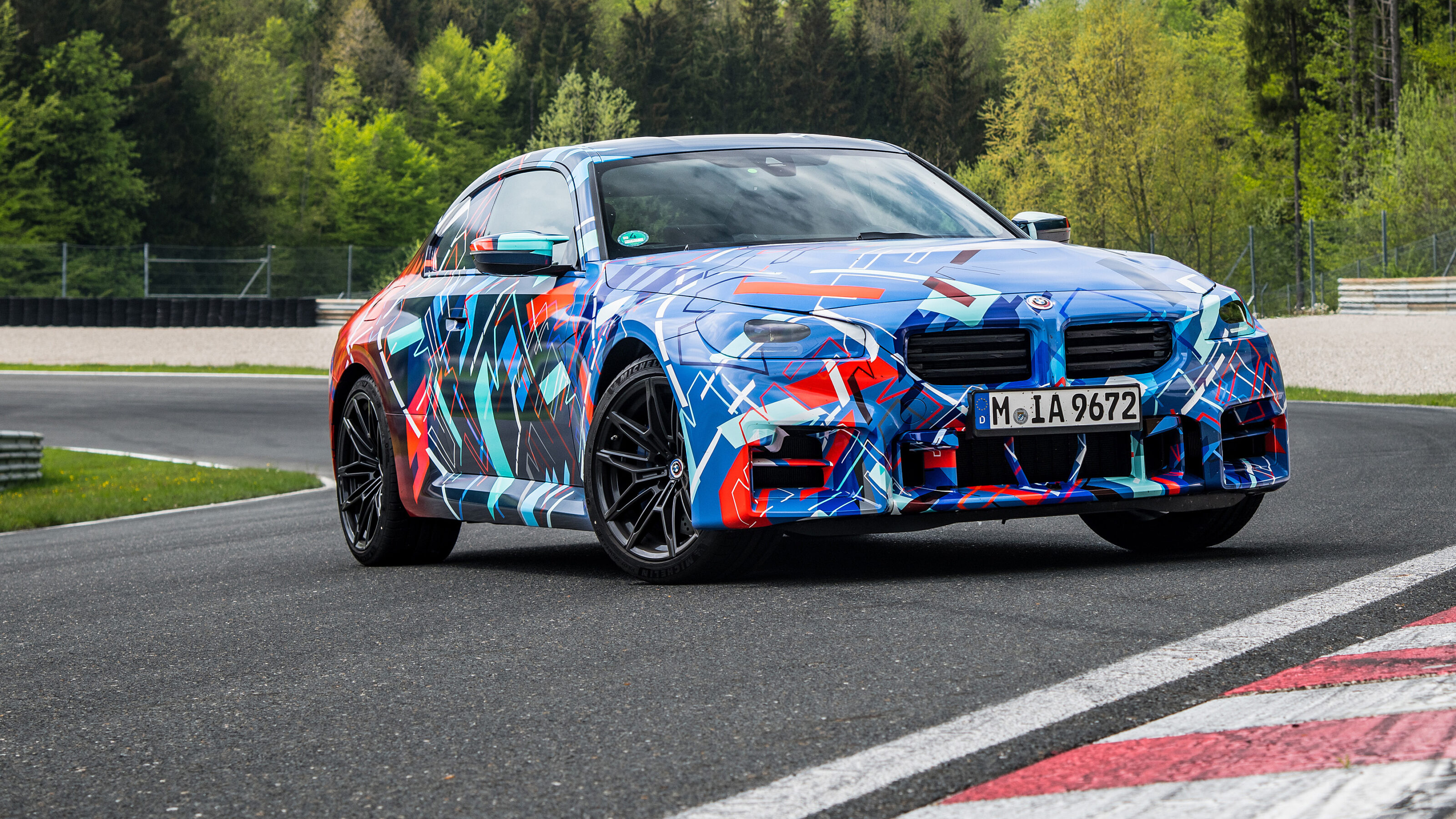
In the rear-view mirror, the other M2 looms large, LED lights on, dressed in the brand’s generic swirly trompe d’oeuil shrinkwrap, which reveals more than it hides as soon as your eyes have sussed out how to separate shapes from surfaces.
Full concentration now, Georg! Focus on the track and stop playing mind games. Driving position? Check. Mirrors? Check. Cabin temperature? Down to 20°C, check. Outside, it´s already 33°C, and lunchtime is still one hour away. Radio? Check.
“Track clear for the familiarisation lap.” Roger that, car number one.
The Salzburgring is embedded in a picturesque remote valley east of, you guessed it, Salzburg. Hometown of Mozart and the namesake confectionary.
The circuit features one very long elevated straight, two reasonably fast 120-degree corners at both ends, a small infield filled with some wriggly stuff, and the extra-wide start-finish boulevard from where an afterthought chicane takes you to the third and final flat-out section.
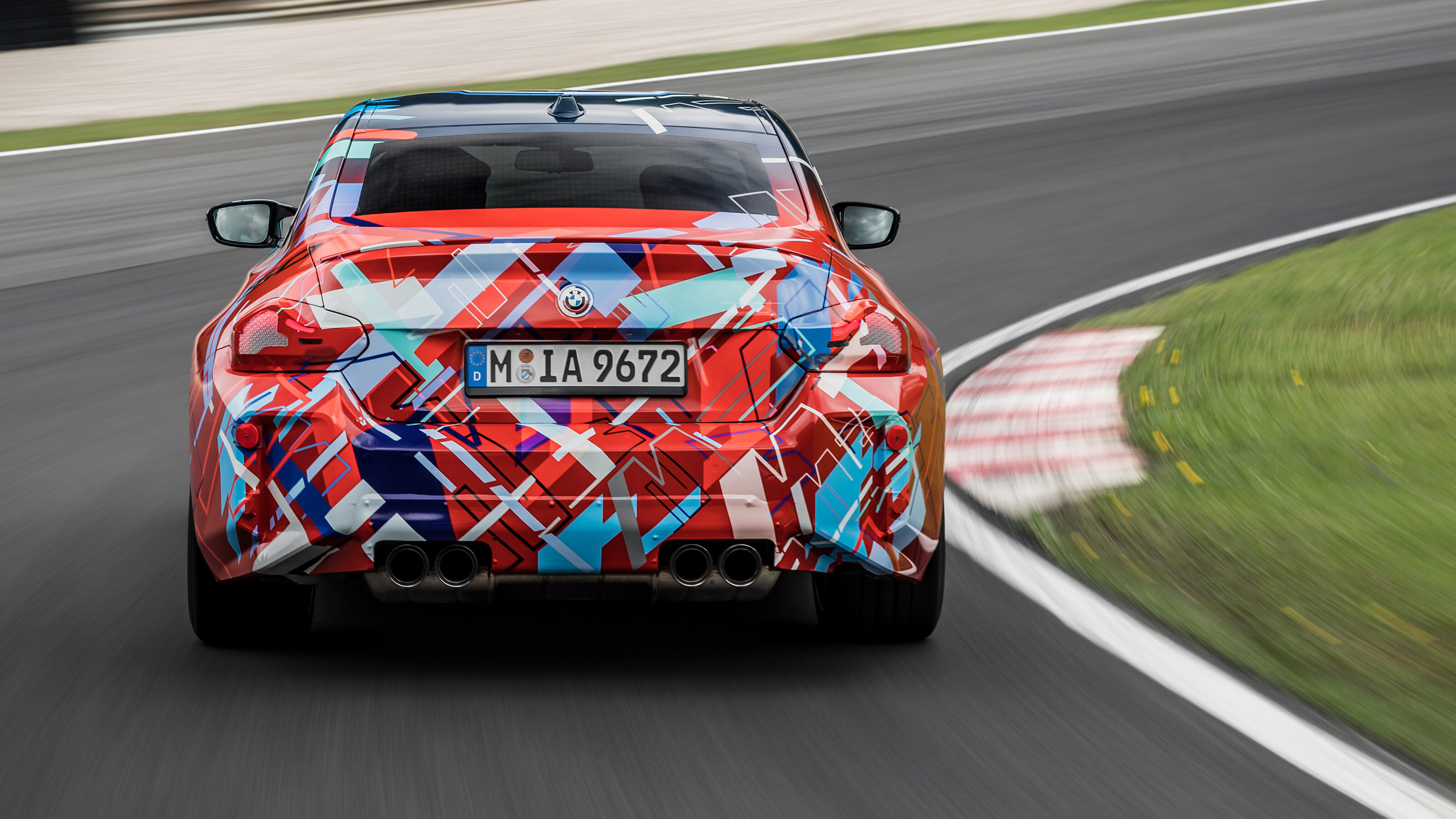
Sounds and looks pretty straightforward, but when come you flying for the first time over the fastest blind brow at an indicated 260km/h, ready to brake as hard as you can for the following panoramic right-hander that almost comes full circle before changing direction, heart and throat momentarily morph into one big wet and heavy gag of flesh.
On lap number three, Herr Häcker finally presses on, the M4 brake lights now pulsating regularly on the approach to the trickier bits, the more aggressive power-on antics leaving subtle black tyre marks on the tarmac, the power and torque advantage of the M4 opening up slightly wider gaps under hard acceleration.
At 343kW, the 3.0-litre twin-turbo fitted to the new M2 is 15kW less potent than the engine installed in the base M3/M4. Maximum torque is however an identical 550Nm, available from 2250rpm, so you get exactly the same bottom-end punch, only in a tighter package.
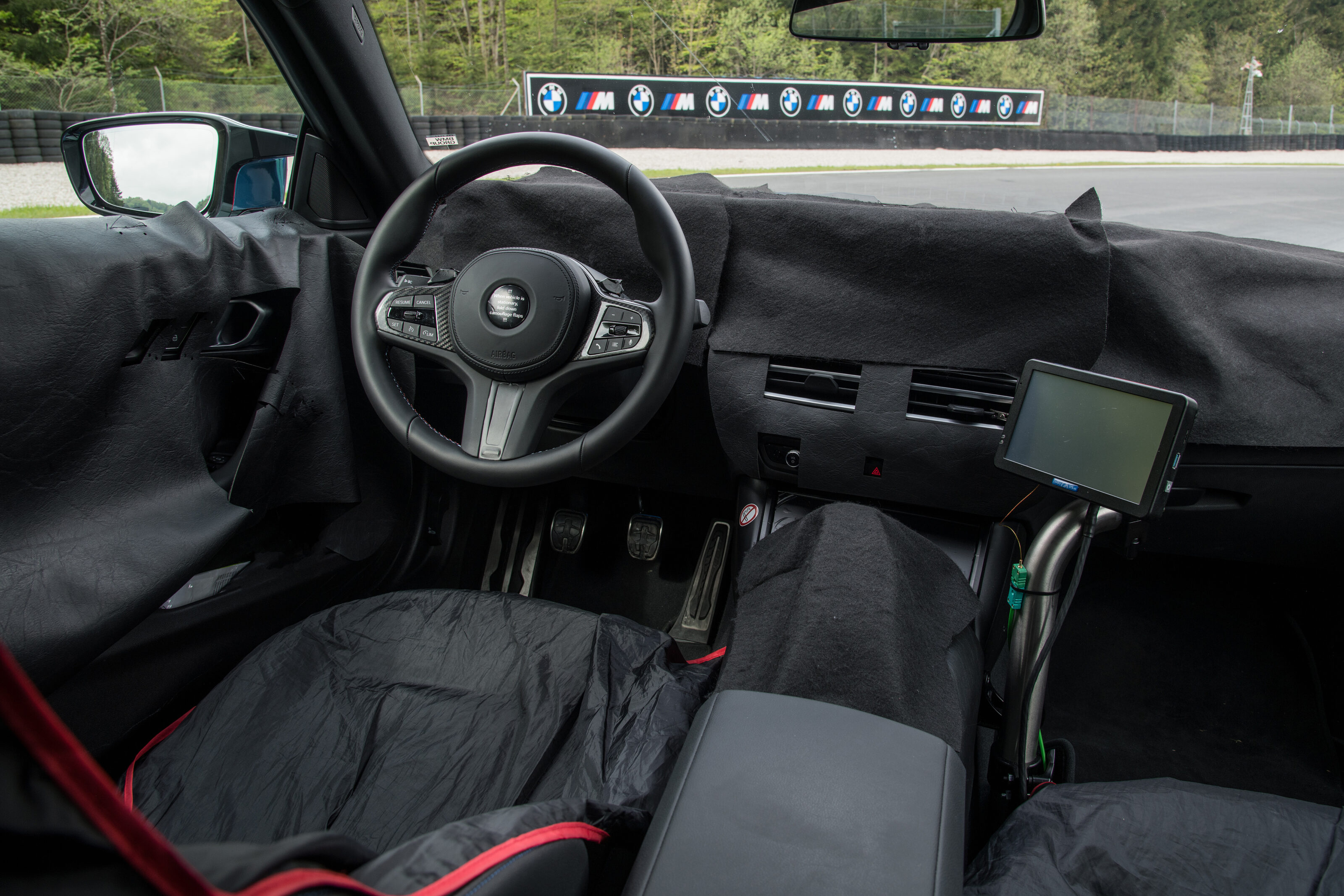
The bigger car does however retain a 35kg weight advantage, which is largely due to a mix of pricier and more exotic low-calorie materials. Although homologation is not yet complete, the M2 will tip the scales at 1810kg, sources say.
At an expected 4.2 seconds from 0-100km/h, the version equipped with the eight-speed Steptronic automatic matches the acceleration time recorded for the M4 with a manual transmission. The provisional number for the do-it-yourself M2 is 4.5 seconds.
While the M4 with driver’s package can top 290km/h, its more compact sister model throws in the towel at 286km/h.
The difference in outright performance between the two models is thus marginal and more politically motivated than discernible on road and track. The same goes for the three-tenths that set the two-pedal M2 apart from the three-pedal variant.
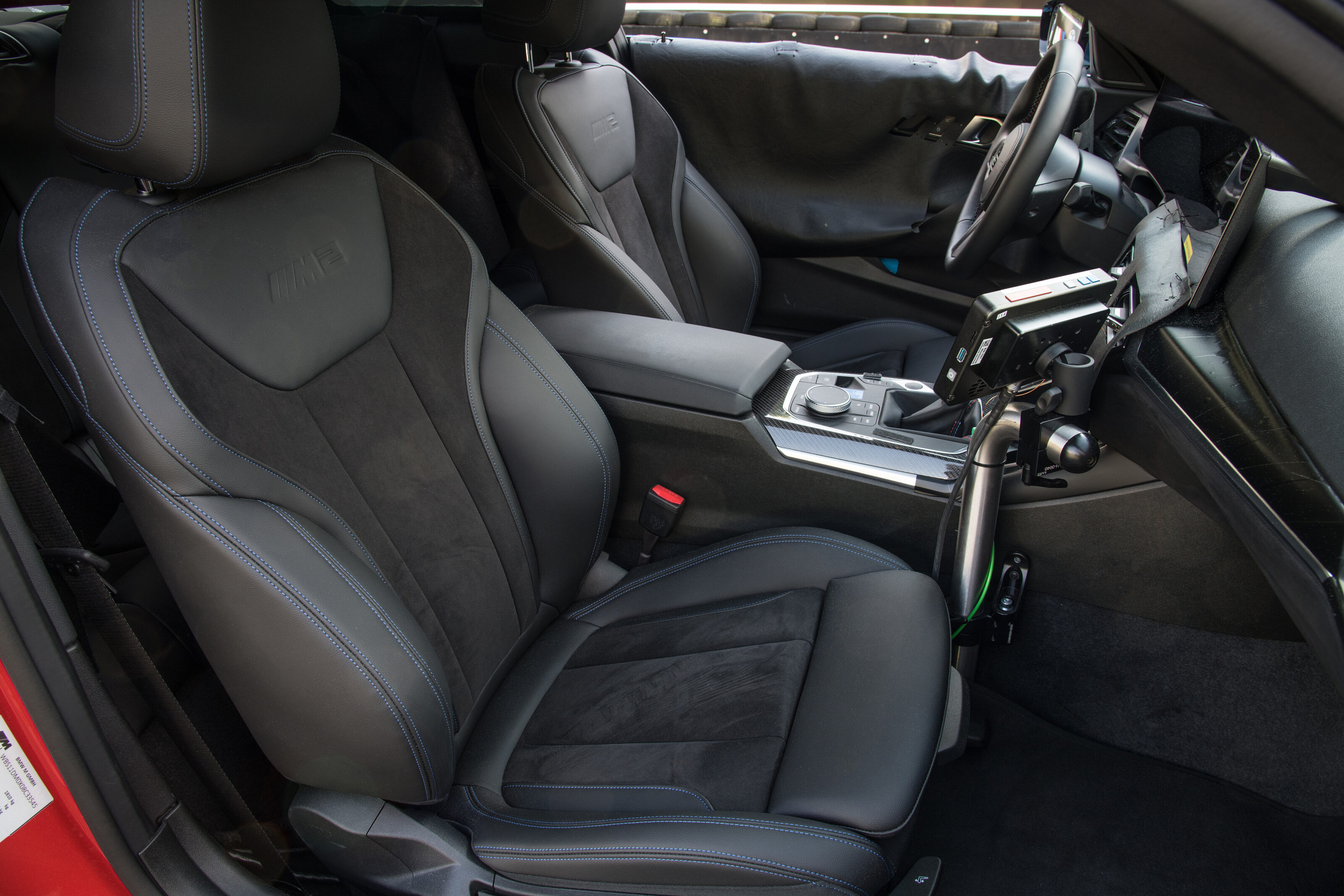
Despite the minor arithmetic disadvantage, the manual feels more inspiring and involving overall, and it’s clear that eight ratios – one more than before – are by no means mandatory to spread all that grunt evenly over a virtually identical speed spectrum.
While M3 and M4 are also available with xDrive AWD technology, the M2 is rear-wheel drive only, as the ultimate descendant of the legendary BMW 2002tii should be.
This layout will also be carried over to the brawnier – did we hear someone say 365kW? – CS derivative expected in the course of model year 2024.
Built in San Luis Potosi, Mexico, the most powerful 2 Series coupé to date shares – in essence – the adaptive M suspension, M compound brakes and variable rate M steering with its upmarket brethren.
Thanks to an extended Efficient Dynamics package, the predicted average fuel consumption works out at a relatively planet-friendly 9.9L/100km.
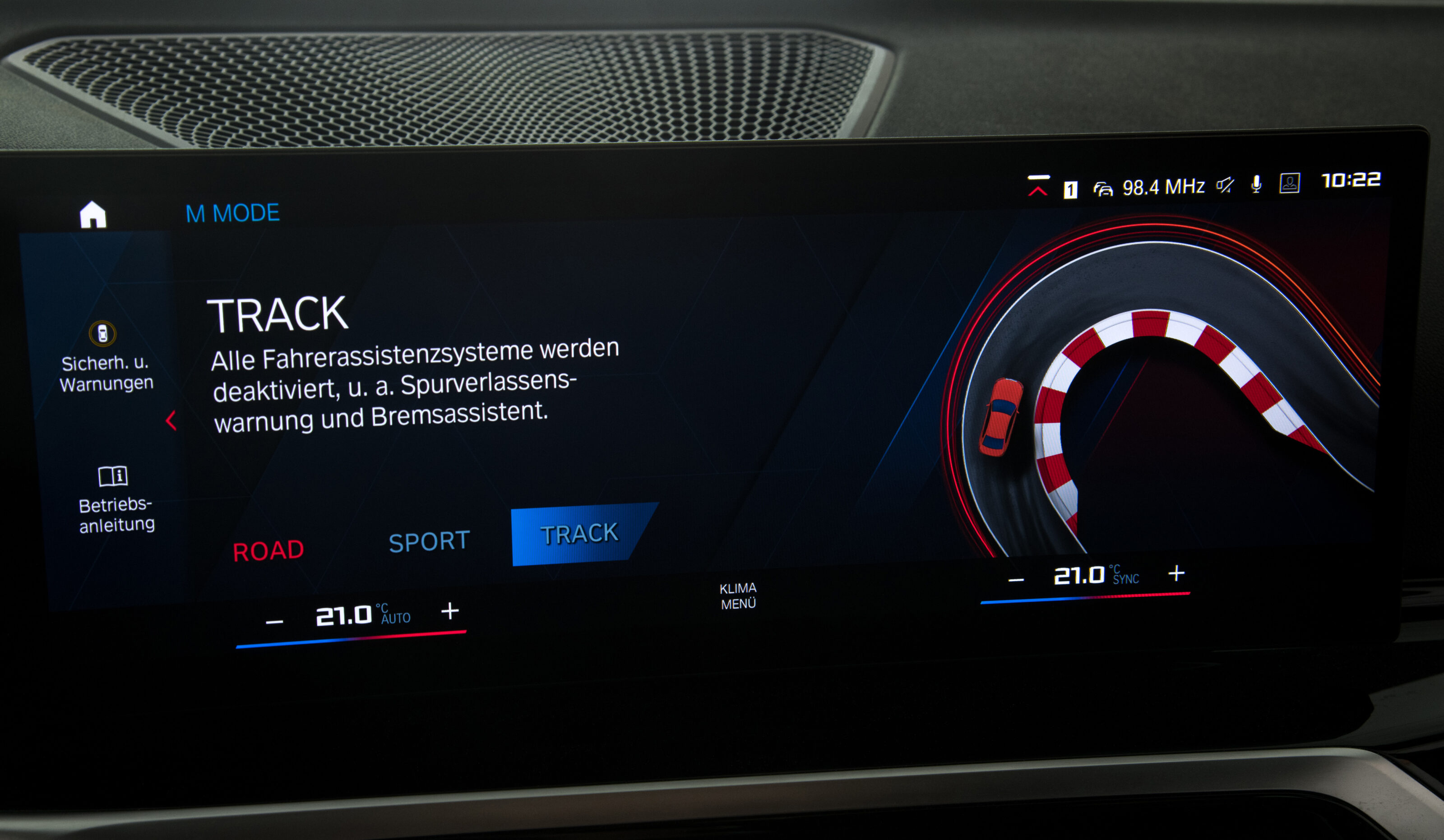
Both prototypes were shod with extra-wide unequal-size Michelin tyres (275/35 ZR19 up front, 285/30 ZR20 in the back), but we suspect the base model will step out of the factory on slightly less meaty 18- or 19-inchers.
You can’t tell, but the M2 pictured here sports the optional lightweight carbon-fibre roof as well as gaudy carbon-fibre racing seats, also an extra.
The electric buckets may save weight over the standard comfort chairs, but their radically contoured shape does not fit every body, and the contrasting yellow, green, orange or blue leather upholstery is definitely more domina than Dreamliner.
The widescreen instrument panel features most of the specific infotainment goodies seen on other M cars, the centre tunnel accommodates again the pleasantly failsafe iDrive controller, there are enough direct-access buttons to avoid getting lost in one of the many submenus, and the gear lever is of course of the old-fashioned kind – no joystick, no automated clutch, no electric reverse but anytime on-demand coasting with the transmission in neutral.
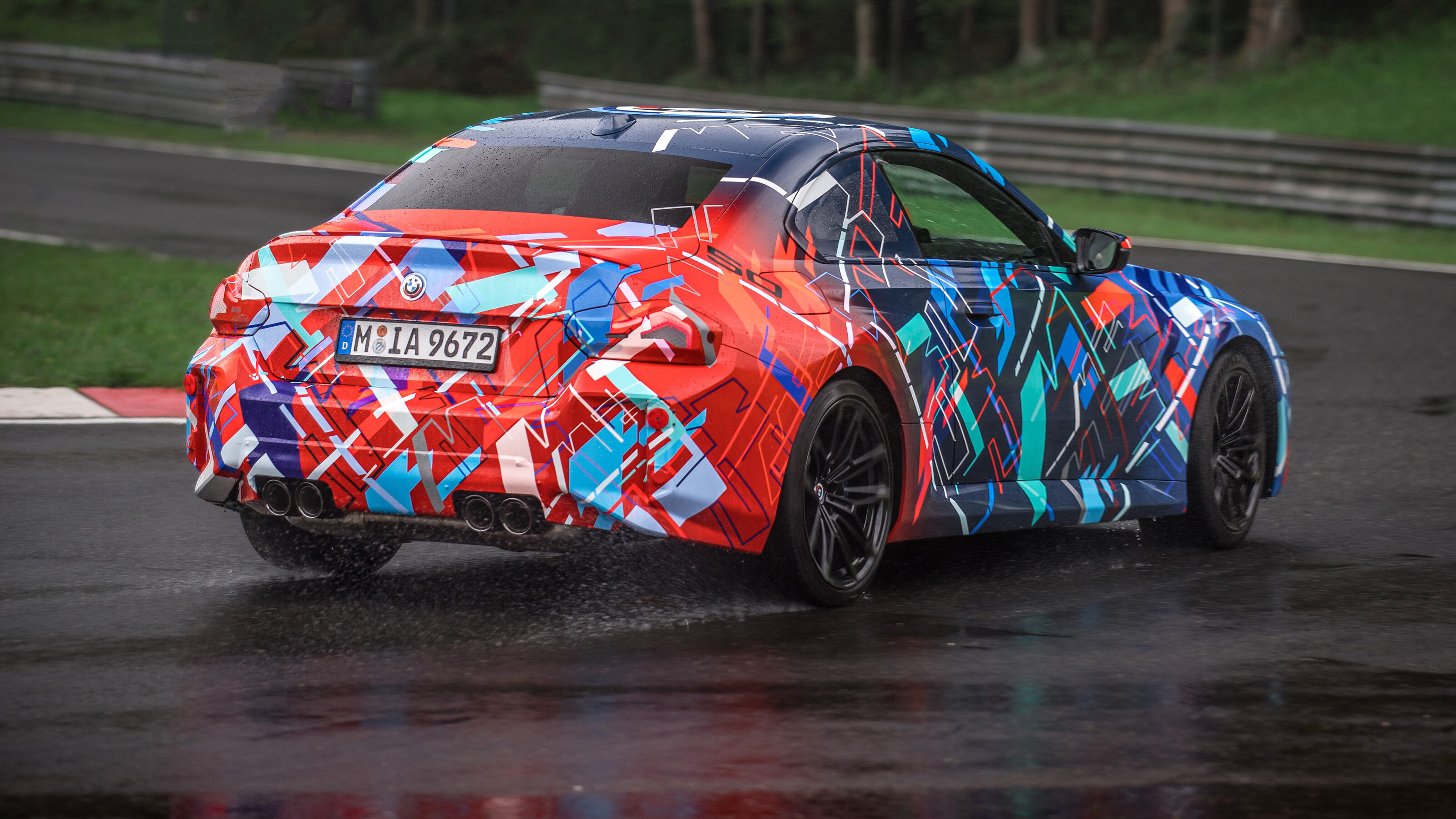
Having said that, coasting is not on today’s menu. What we prepared for you instead is precision upshifting right on the redline, dispatching large helpings of torque towards the high-mech diff and its electronic helpers, plus of course sampling the full range of power-on and power-off antics.
First and foremost, however, the three drivers must agree on a rhythm and establish a flow, then follow the groove while deciding on a pace everyone is comfortable with. There is no denying that changing gears manually is more of an emotional act than a tangible benefit.
The automatic transmission is a fine everyday stress relaxant, but it lacks the sharp edge, the fine motor challenge and the deep involvement of doing all the interactive work by yourself.
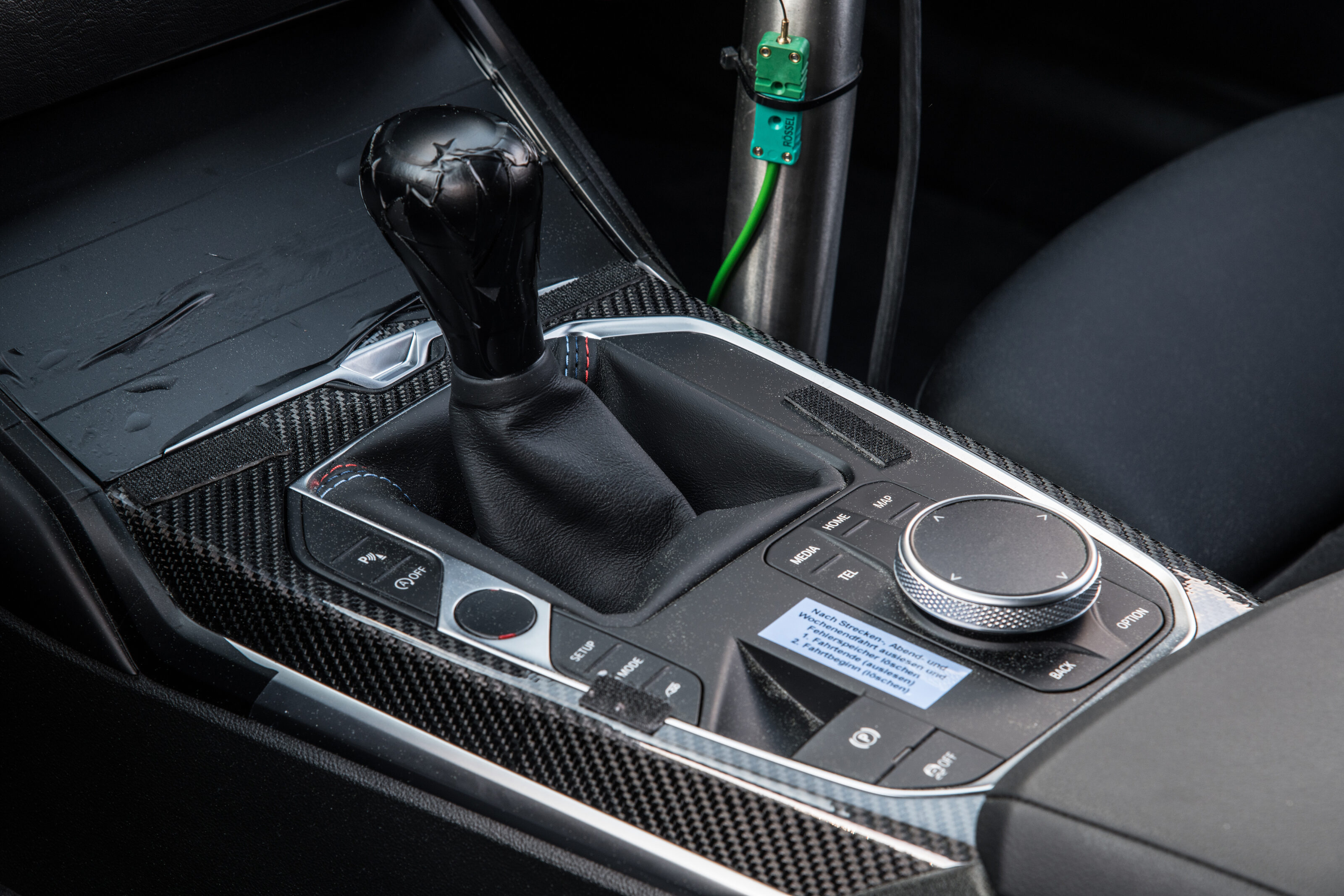
In theory, the manual car loses time to its auto counterpart because every gear change – up and down – takes that little bit longer. In reality though, one can recover much of it through intelligent timing and accordingly coordinated action.
Even with war paint all over its face, the new M2 looks intriguingly different from its narrower and taller predecessor.
Deeper spoilers and more wind deflectors, wider skirts, bolder flares, fatter wheels, the substantial rear diffuser, bootlid-mounted air dam, edgier grille, darker lights, lowered suspension – this model sports the full M bodykit, which is not subtle but quite substantial and very effective.
The same goes for the chassis, both in fine detail and as a whole. Enhanced stiffness and torsional rigidity yield flatter cornering habits, as well as more grip and traction, compared to the M240i.
While the M4 looked perfectly composed from behind with the R&D chief in charge, the M2 felt definitely more playful, and it would happily accept all the acreage it could get. The secret is in the mix.
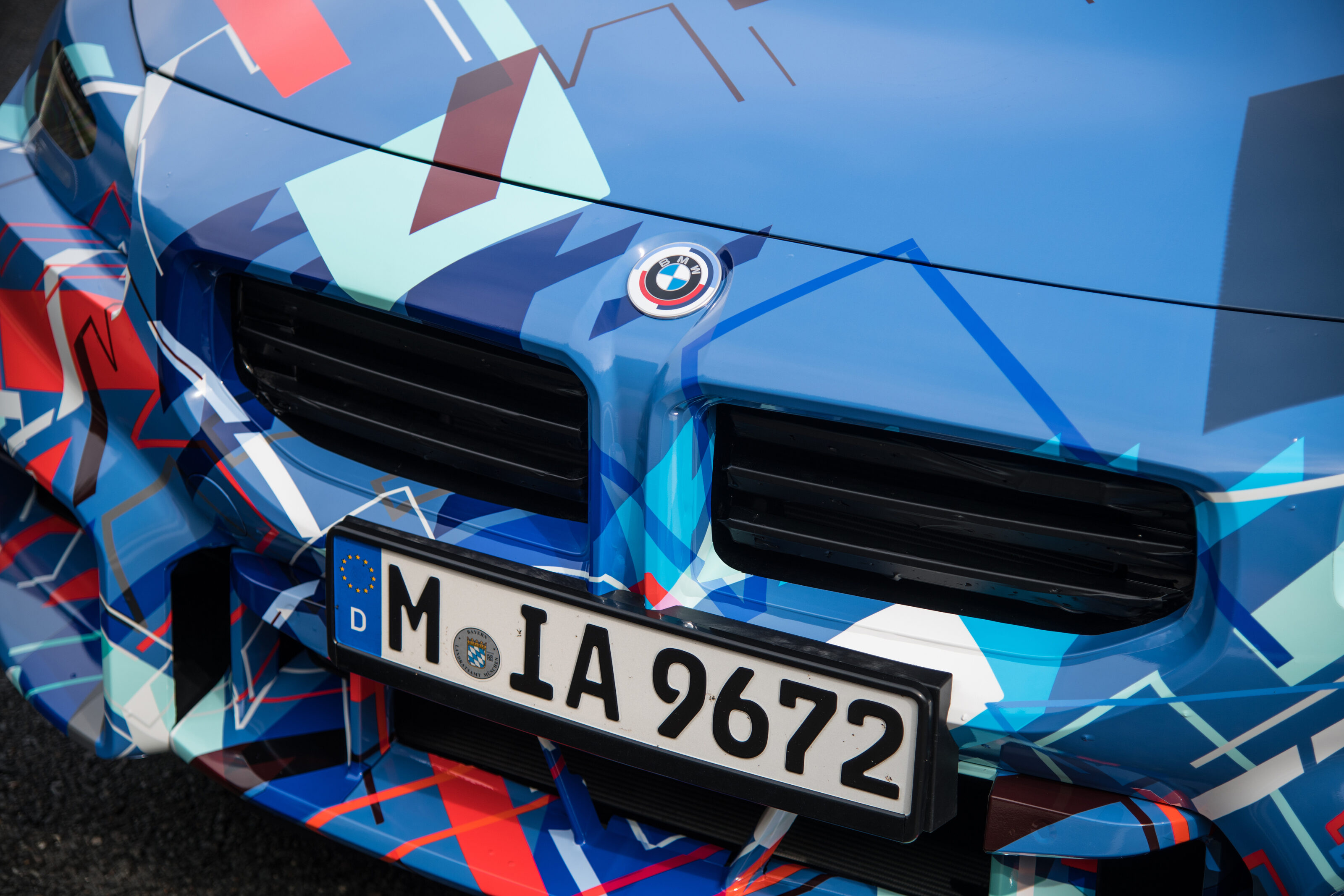
Time the turn-in to perfection, get the steering angle absolutely right, synchronise the throttle input to fine-tune the momentum, and you won’t sacrifice a single tenth. But get the line wrong or misjudge the entry speed, and everything that follows will fall apart, too: braking point, weight transfer, composure, grip, exit speed and ultimately the driver’s confidence.
Watching the guy behind me almost losing his baby twice before finally spinning out only confirmed that the M2 can turn from Bambi to beast with the stability control switched off and the driver’s right hoof cut loose from the black box inside their head.
Through the two third-gear corners, the demarcation zone between eventual understeer and early oversteer was surprisingly narrow and wriggly. Not only from the vantage point of the M2 but also when watching the M4 in front going through exactly the same motions.
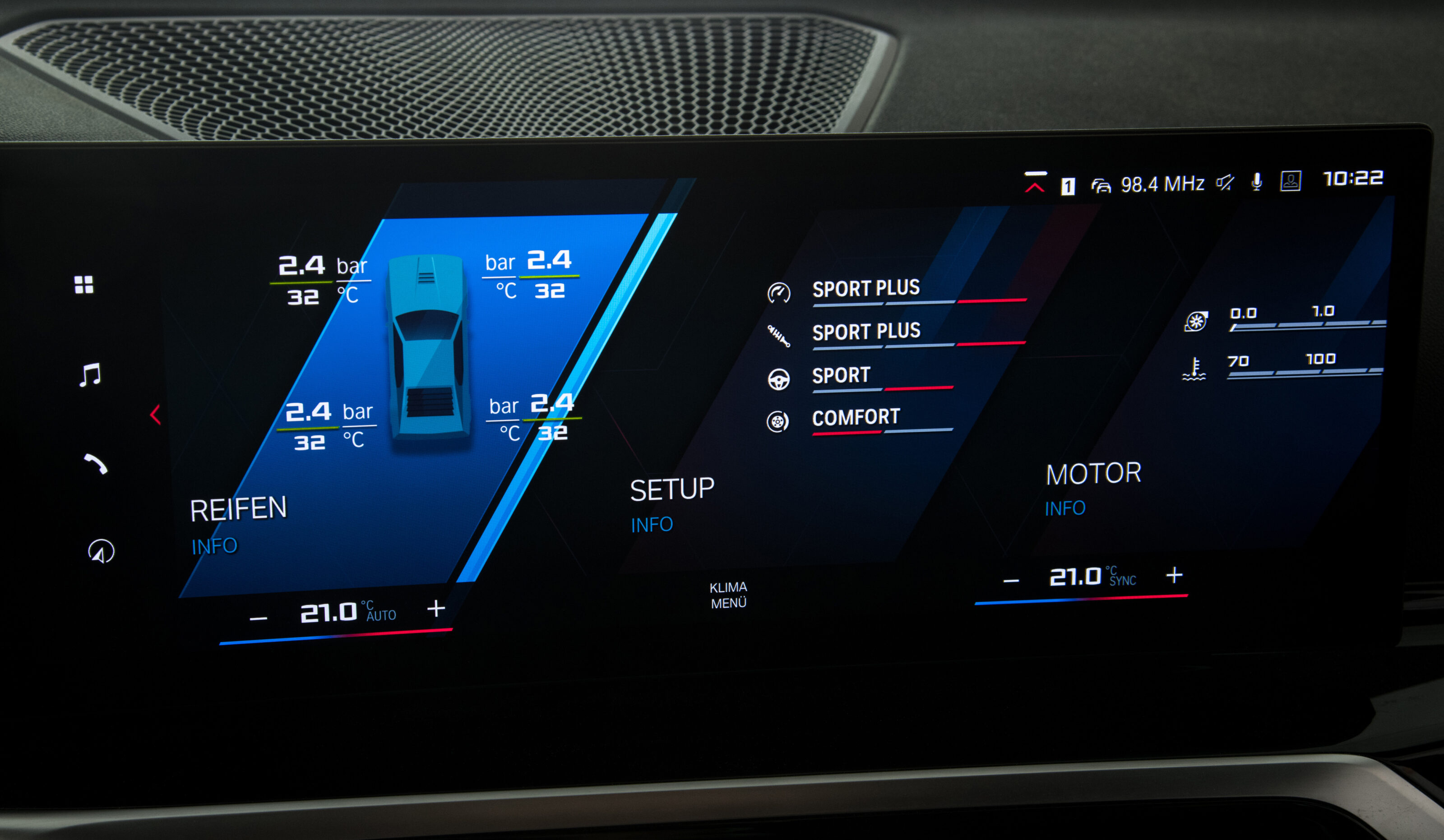
Dirk Häcker described this handling attitude at different points in time as intriguing, delicate, malleable, fusing and interactive. We would call it deeply involving, and praise the manual transmission for its connecting talents while the laissez-faire auto tends to keep the car on a longer yet less precise leash.
The steering feels a little meatier than in the M240i and somewhat more strongly centred than in the M4, the muscular inner-ventilated steel brakes becoming a bit heavy when pushed. The ride is unperturbed on the track but knobbly and not exactly quiet on the perimeter roads.
If there will be a next-generation M2 at all, it is bound to be fully electric, complete with all the related pros and cons.
While the bigger sister models are an acquired taste as far as their front-end design is concerned, the smallest fish in the M pond won’t give the taste commission a reason to complain.
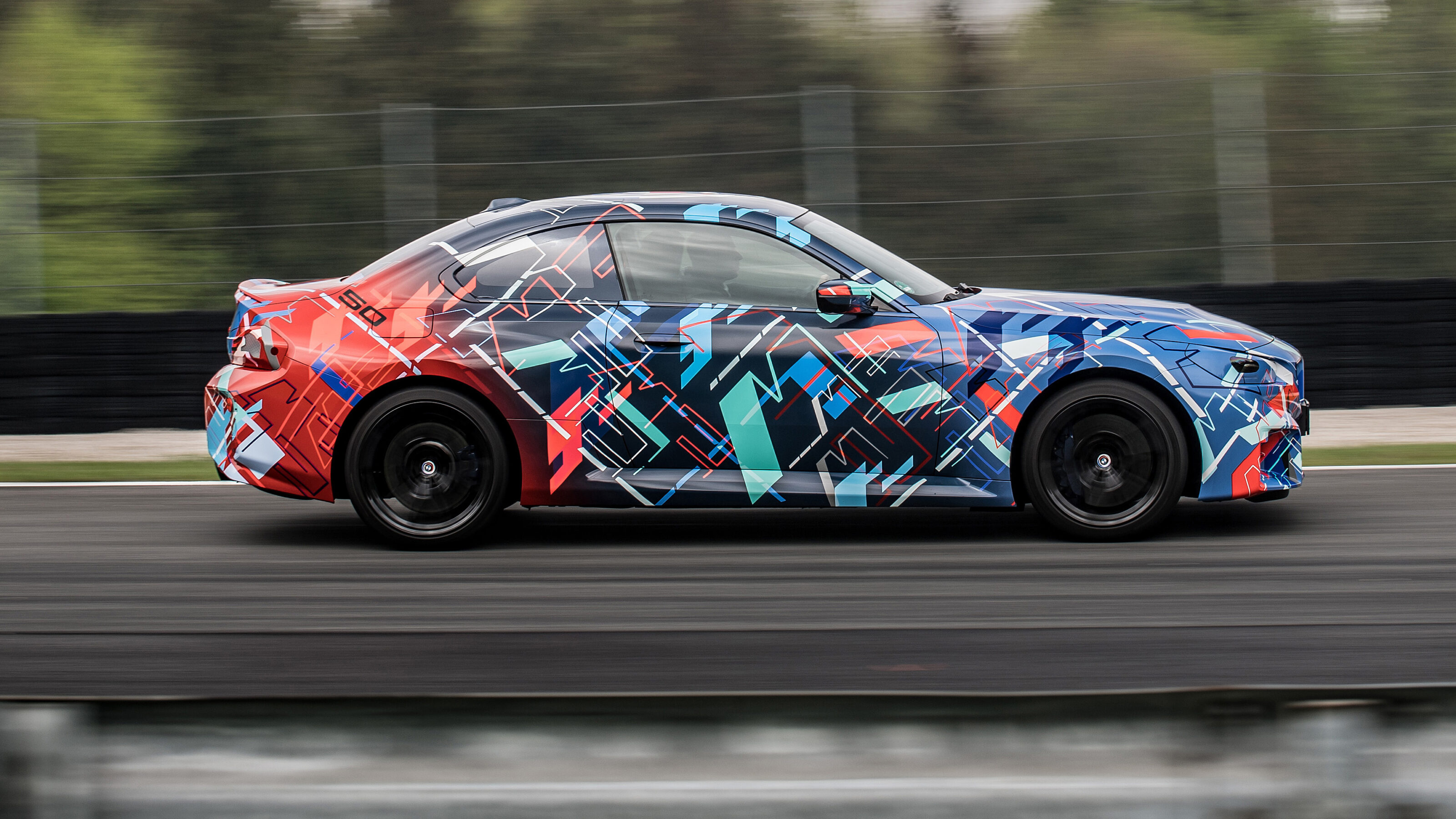
It’s too early to quote a price, but when the first production cars arrive in late autumn, they are bound to undercut the M establishment by between €20K and €25K (AU$30-37K).
After one hour and two car changes, we are now back at the pits for good, inspecting tyres that had allegedly done a massive 320 laps but were still deemed fit for the last group of journalists, as were the original brake discs and pads.
So, M4 or M2… which one to take?
The M4 as a second or third car if you can stretch to the CSL or fancy a soft-top. The M2 gets the nod if the fun factor matters more than lap times and absolute performance.
Specify the no-extra-cost manual gearbox, and you have a fairly priced instant classic with no waiting list. A no-brainer, really.
Things we like
- Fabulous in-line six
- Performance almost on par with M3/M4
- A blue-chip investment
- Guaranteed to put a smile on your face
Not so much
- Has four seats but only two doors and is no packaging miracle
- No magic carpet over rough terrain
- Liable to bite back when teased
- High insurance premium
We recommend
-
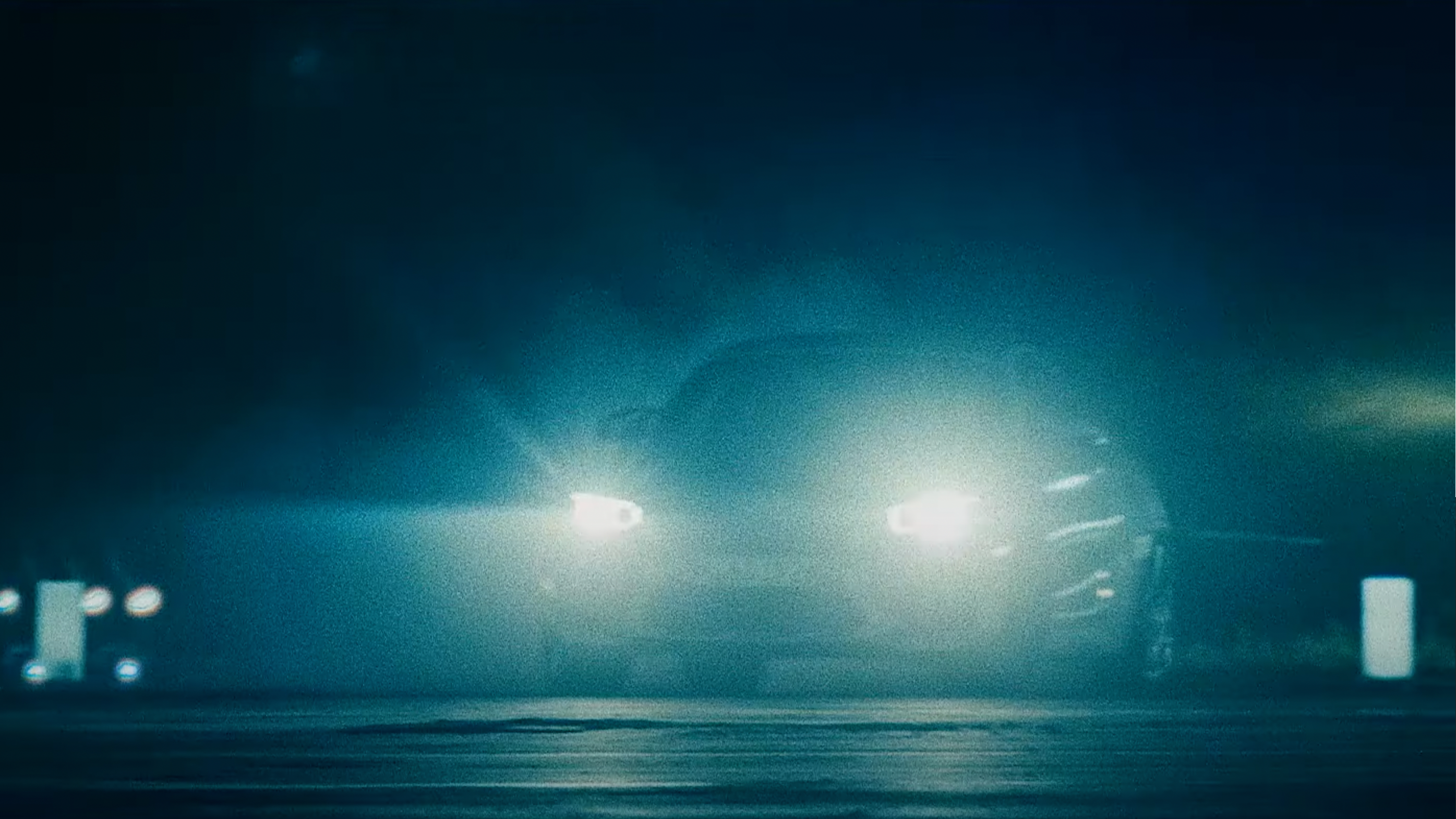 News
News2023 BMW M2: Everything we know about BMW M's pocket rocket
BMW's second-gen M2 promises to be one of the best value-for-money M cars on the market
-
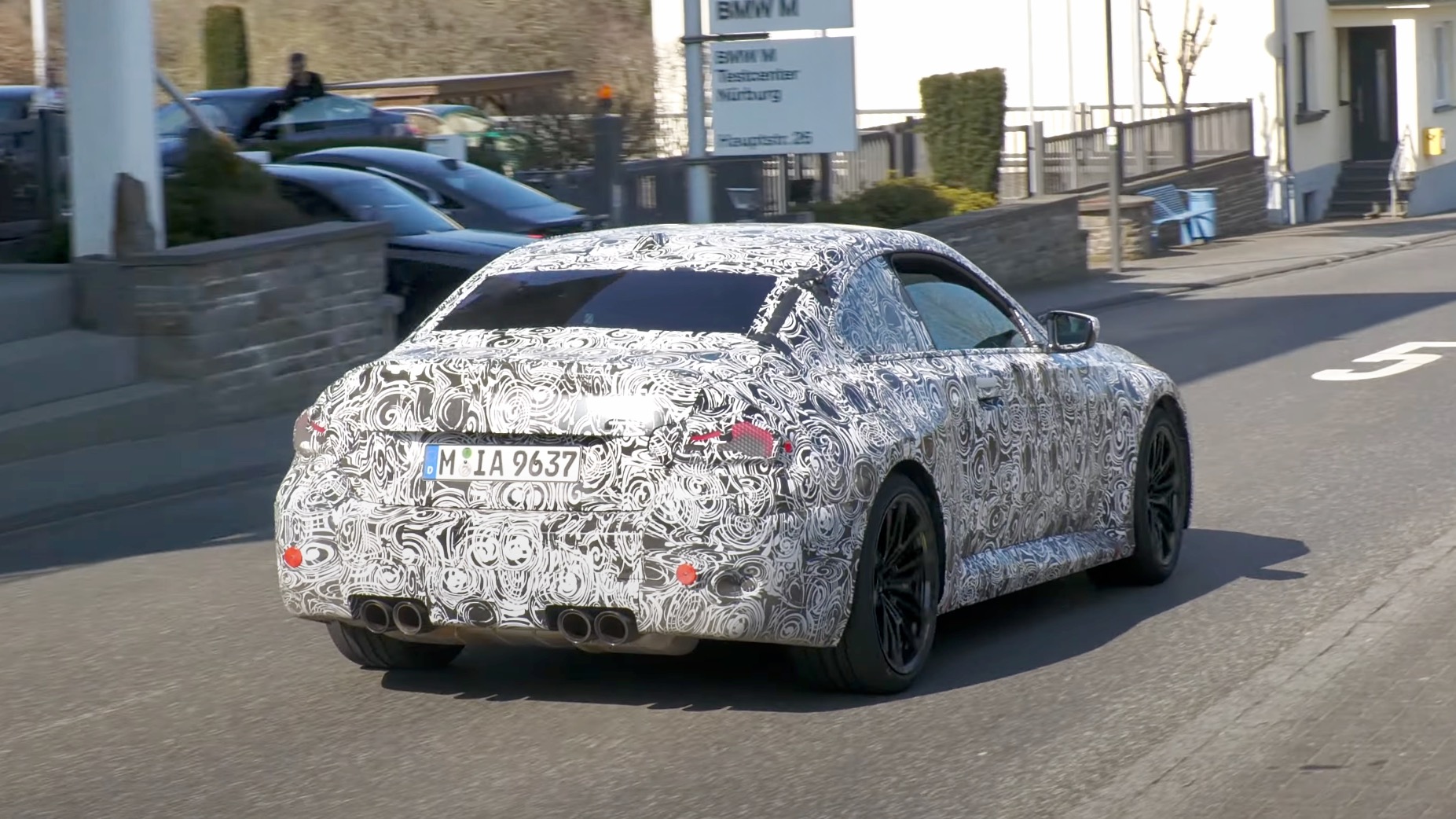 News
NewsVIDEO: 2022 BMW M2 caught testing at Nürburgring
With the new M2 set to enter production in December, the high-performance coupe has been seen undergoing track testing
-
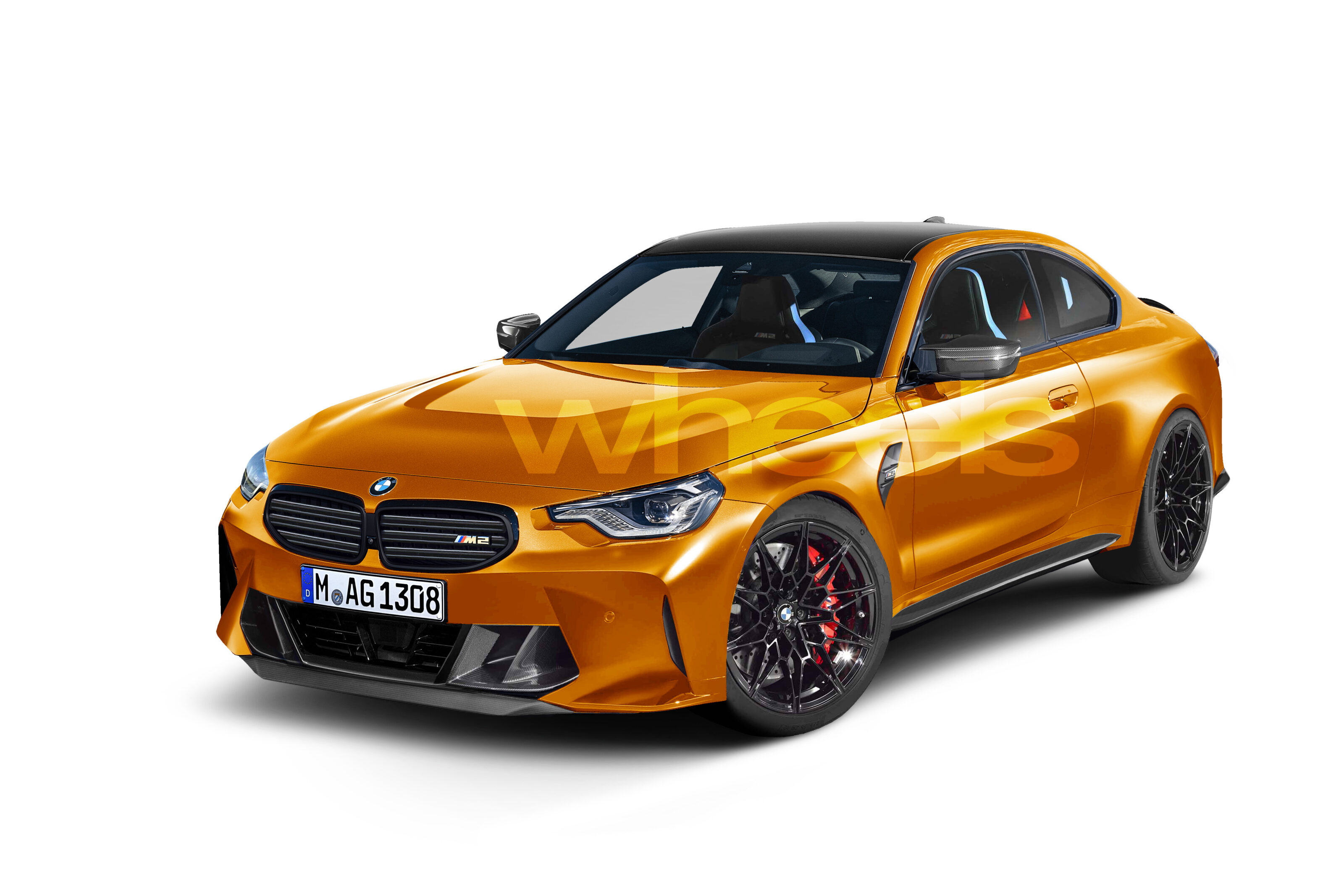 News
News2023 BMW M2 preview
New G87-gen M2 will remain RWD, and pave the way for an M2 Gran Coupe and fiery full-fat M 1 Series

